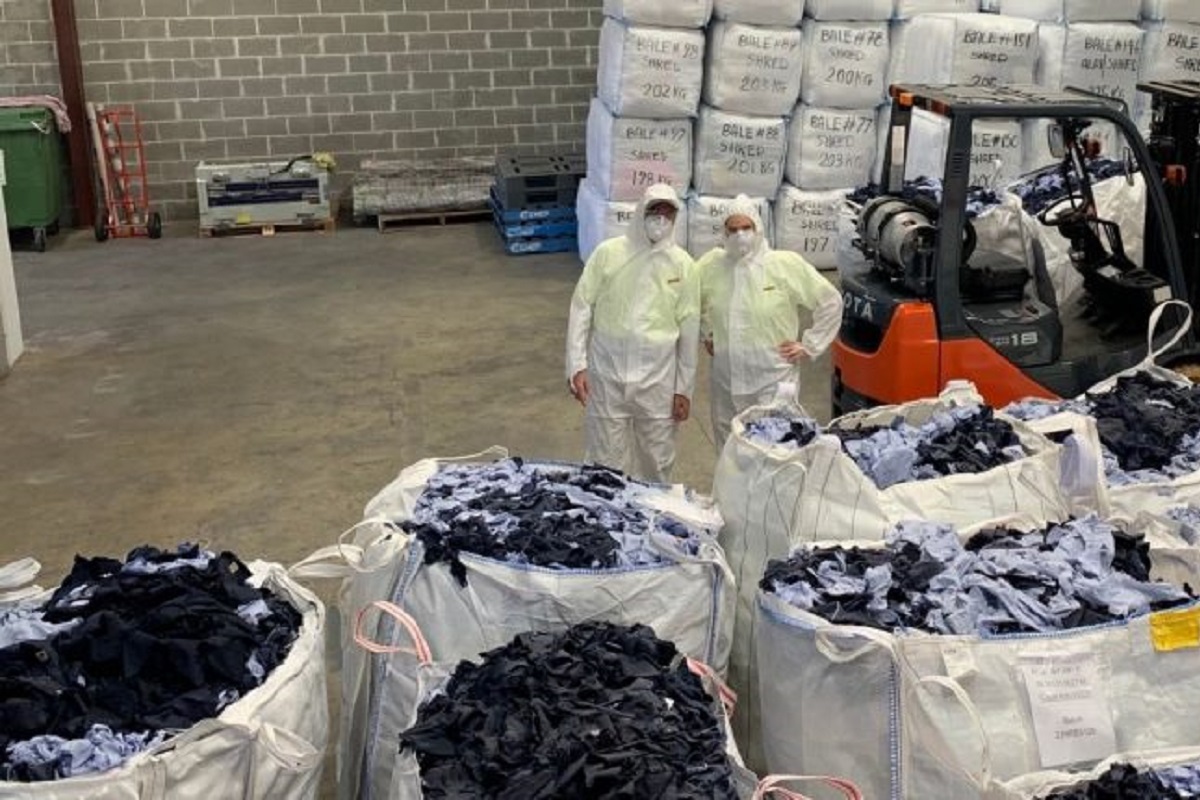Aldi Australia has partnered with Textile Recyclers Australia to establish a sustainable solution for the disposal of its old employee uniforms.
Earlier this year, Aldi rolled out new uniforms for its store employees, and through this new partnership the old uniforms will be recycled back into yarn, which is then made into new fabric for the fashion and furnishing industries.
To date, Aldi employees have returned more than 26,500 kilograms of uniform, the equivalent weight of eight cars.
Maureen Taylor, Co-founder, Textile Recyclers Australia, said using upcycling solutions is helping businesses keep unwanted textiles and apparel out of landfill.
“It’s great to see Aldi take responsibility and adopt innovative ways to reduce its environmental footprint,” she said.
“The material from the pre-loved blue uniforms has been well received by manufacturers given the high demand for coloured fabrics in this market. As we continue to research and facilitate solutions to textiles recycling in Australia, we hope we have the opportunity to partner with Aldi on more projects into the future.”
Daniel Baker, Director Corporate Responsibility, Aldi Australia, said: “One of Aldi’s core values is responsibility, and it is important to us that our old uniforms are diverted from landfill and instead utilised sustainably as part of a meaningful closed loop solution.”
The uniform recycling initiative is just part of Aldi’s sustainability programs across the wider business and supply chain.
By 2025, it aims to send zero waste to landfill, which includes a goal to achieve zero food waste sent to landfill by 2023. Aldi also aims to reduce the amount of plastic used in packaging across its range by a quarter by 2025 and more recently, the business has achieved powering all of its operations with 100 per cent renewable electricity.
“With capabilities in end of life solutions evolving, we will continue to investigate closed loop opportunities to adopt and further reduce our environmental impact,” said Baker.


